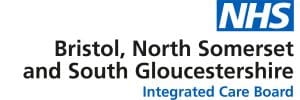Neurodiversity profiling pilot launches in local schools
A new pilot scheme, based in local schools, is exploring ways to improve support for children awaiting assessment for neurodivergent needs such as autism and attention deficit hyperactivity disorder (ADHD).
The six-month neurodiversity profiling pilot has been developed by local health and education services working with parent carer forums, charities, schools and other partners in the Bristol, North Somerset and South Gloucestershire area.
It will operate alongside the area’s existing autism and ADHD assessment service and will provide earlier identification and understanding of children’s needs, so that staff can work with families to develop support strategies while they wait for a formal assessment.
The pilot began in October 2024 and will run in 42 local primary and secondary schools, plus eight nurseries, until March 2025. Around 200 children and their families are expected to take part, including home-educated children and young people.
Sirona care & health runs the area’s autism assessment service and will be managing the pilot scheme on a day-to-day basis working with local schools.
Lead for children’s autism assessment at Sirona, Vicki Bates, said:
“We know that many parent carers struggle to get the right help for their neurodivergent child, and we’re committed to addressing that.
“This pilot will complement the existing autism and ADHD assessment service, by providing an earlier understanding of a child’s needs and then guiding families to relevant resources and support.
“We’ve considered best practice from across the country in designing the scheme and we’ll be evaluating it very carefully over the coming months to understand its potential benefits in more detail.”
The three local parent carer forums for Bristol, North Somerset and South Gloucestershire have been closely involved in developing the pilot.
Chief executive officer of South Gloucestershire Parent Carers, Rachel Trueman, said:
“Many families find it hard to navigate the health and education system, or to know who to talk to when they have concerns that their child may be neurodivergent.
“Even when children are accepted on to the autism or ADHD assessment waiting list, the difficulty some families face in accessing support can mean their needs go unmet while they are waiting.
“I hope the pilot will tackle this by improving understanding of children’s needs at a much earlier stage in their journey towards assessment, and then helping families to access support right away.”
Donna Harris is Assistant Principal at Heron’s Moor Academy in Weston-super-Mare, one of the primary schools taking part in the pilot. She said:
“We’re really pleased to be taking part in this pilot and exploring how we can build on the support we provide to children who have additional needs associated with neurodivergence.
“This new approach promises to identify children’s needs at a much earlier stage and will help us to work with families to access appropriate support.
“It is early days but the initial response from families has been positive and we’re looking forward to seeing how it will work in practice over the coming months.”
The pilot features a neurodiversity profiling tool, first developed in Portsmouth and now widely used in other areas, which will be used in education settings to provide an early understanding of children’s needs.
A neurodiversity support team at Sirona care & health will train professionals in schools and nurseries to complete the profiling tool, then provide advice on available guidance and support that could help the child or young person at home or in their school or nursery.
The pilot is underpinned by an ambition across key health, education and care services that support should be available according to need, rather than whether a child has been formally diagnosed as neurodivergent.
Detailed evaluation will be carried out after March to understand the potential impact and benefits of the scheme for children and their families.
The pilot forms part of a wider Bristol, North Somerset and South Gloucestershire neurodiversity transformation programme, which was launched in 2023 and is led by the NHS Integrated Care Board and the three local Parent Carer Forums.
The programme brings together health, care and education services, and local charities such as Barnardo’s, to explore ways to better support local neurodivergent children and their families.
More information about the programme, and the pilot scheme, is available on the Healthier Together health and care system website.

